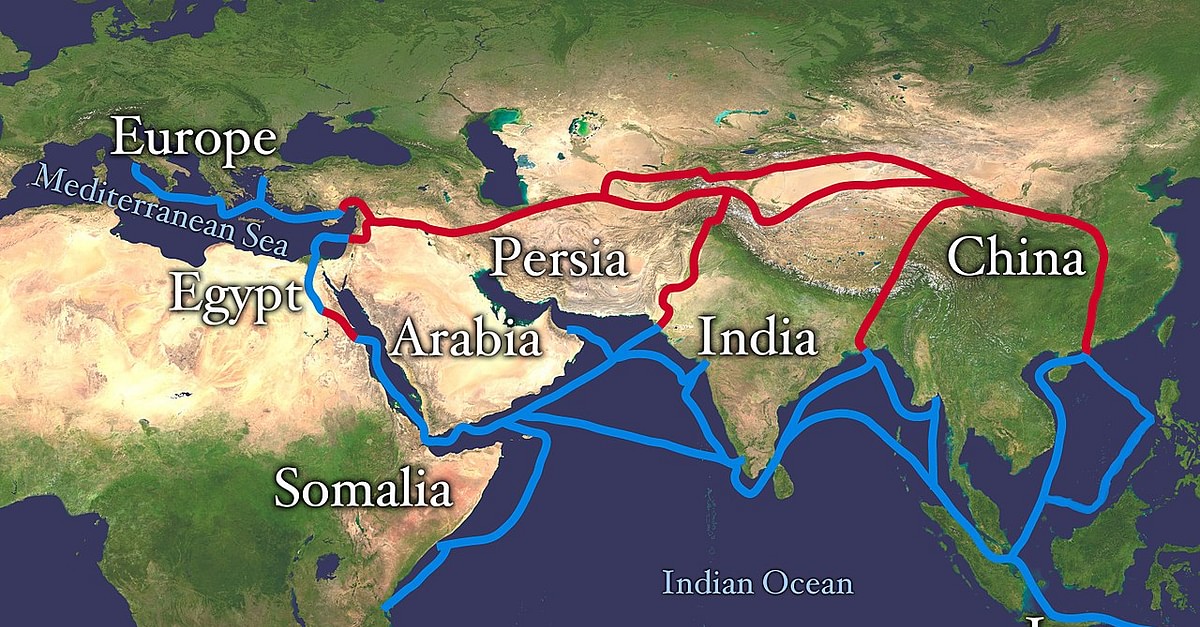- Epirus.vc
- Posts
- 4 Lessons Entrepreneurs Can Take From The Silk Road
4 Lessons Entrepreneurs Can Take From The Silk Road

The Silk Road is a network of ancient trading routes that connected the Eastern parts of the world to the West. These trade routes were established by the ancient Han Dynasty and lasted for more than 1500 years. According to historians, the discovery of the Silk Road is credited to a man named Zhang Qian who was a Chinese envoy.
While on official duty, Qian was arrested and imprisoned in Central Asia and remained in captivity for 10 years before he finally regained his freedom. But his sacrifice paid off when Qian returned to China with information that soon opened up trading between China and Central Asia. The Silk Road has long been closed, yet it left behind a rich history that entrepreneurs can learn from to this day.
#1. Always be on the lookout for new opportunities
Despite its name, the Silk Road was not a single “road”, but several trading routes. The popularity of the Silk Road is clear in the fact that it lasted for several years (130 BCE-1453 CE). It would seem unlikely that all that would one day end, but like everything else, it did. The once thriving Silk Road soon became a Tourist attraction and where did the merchants and their merchandise go? Well, they found new ways to carry on with their business. New trade routes opened up on the sea, hence the introduction of the Age of Discovery.
Lesson: Entrepreneurs need to understand that there is always a new and even better opportunity lurking around the corner. The Age of Discovery took global trading to the next level. Much like the introuction of a new technology.
#2. Variety is the spice of business
The name Silk Road may be a bit misleading since it gives off the idea that Silk may have been the only goods exchanged there. But one reason why the Silk Road was so popular is because you could get whatever you wanted. Merchants exchanged anything worthwhile including Silk. But it wasn’t only goods that were exchanged, other non-tangible items including; culture. Art, religion, philosophy, technology, language, science, architecture, and even diseases were traded as well.
Lesson: the adage “Never put all your eggs into one basket”, is old but gold. Entrepreneurs can guarantee the longevity and sustainability of their businesses by diversifying their products or services. Diversification can also include targeting different audiences.
#3. Adapt and Thrive
In nature as in business, learning to adapt is the key to survival. Darwin may not have thought about the survival and evolution of a business when he postulated his theories. But they do apply all the same. A business that fails to adapt will soon find itself under. Adaptation in business is all about looking out for the latest technology that can help your business level up.
Lesson: Time and time again, history has proven that a company that fails to innovate soon phases out. Businesses that thrive are those that adapt to the times.
#4. Persistence
Navigating and discovering the Silk Road wasn’t easy. Qian spent several years in prison but didn’t let this set him back or deter him from his mission. Apart from Qian’s sacrifices, many other merchants who traded the Silk Road had to brave the elements, the rugged landscape, diseases, and criminals. These made the Silk Road, not a place where everybody dared to transverse. But the few traders who were brave enough to go there and survive the odds raked in a fortune.
Lesson: Entrepreneurship has its ups and downs. Sure it is not for everybody. So you need to be very sure it is what you want to do and not only because you want to make money. If the money is your only driving force, you may have second thoughts when things get rough.
Click the link below to read more on the Silk Road
In case you missed it, our midweek articles focus on how business owners can leverage the latest technology. You can read our last post below;
That’s all for now folks.
Until next time, stay inspired and keep chasing your dreams!
Cheers,
Alex

